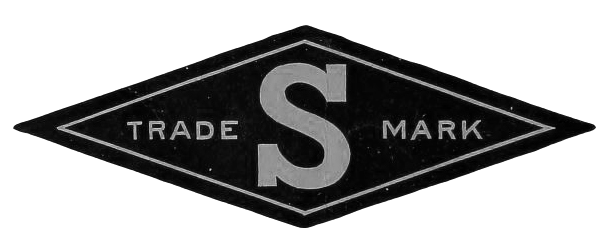Glenn Close puts forth one of the early Oscar contender performances of the year in Bjorn Runge's tension filled, THE WIFE. Here is my full review for the film.
The title showcases the truth into which character holds the most intrigue. Having a talent like Glenn Close able to tackle such a rich character is the real treat of the movie. The wonderfully measured pacing of the movie allows Close to truly knock out each emotion of her character Joan Castleman. As the tension arises we see the deep seeded turmoil that has been bottled up in Joan. Glenn Close is rather fantastic at hiding this for as long as she does in the film. Jane Anderson's script really maximizes pacing by allowing for a tremendous amount of family drama to be revealed. The movie does have a few well done flashbacks that confirm Nathaniel Bone's (Christian Slater) inquires into the real lack of talent of Joe Castleman (Jonathan Pryce). Slater has a juicy sequence with Close that his prodding at his ghost writer hypothesis is adeptly joked away by the shrewd Mrs.Castleman. It takes someone much closer to her to make Joan finally crack at the falsehood of her husband's honors. That is where Max Irons as David Castleman comes to fulfill the jaded son archetype. Tremendous casting if you look at Max's last name alone! David's eventual acting out moment in Stockholm reveals so much about Joan's anger at not being important in her own son's eyes. The scene is teased beautifully in an earlier moment where David bypasses his mother's opinion of his short story only to want his father's evaluation. The acting of Close, Irons, and Slater are fully maximized by the stoic portrayal of Joe Castleman by Pryce. His ability to really revel in the grand honor of the Noble Prize is both fully understandable and also hauntingly horrible. The lack of real love is only gained from understanding the decades of servitude Joe has put Joan through. The importance of a symbol also helps. In this case the walnut is a perfect foil and pendent for Joe. It's his unique way to sway younger women to like his poignant nature but ultimately is his big mess up as his last walnut causes full closure for Joan. Just as his first walnut put him both in Joan's life and on top of literary world. Her final raged-fueled moment is set off by seeing that darn nut. The illusions and metaphors in the book and the film are so wonderfully tied together. The acting is allowed to truly shine in this film and Glenn Close and Jonathan Pryce should benefit from this coming awards season. Glenn especially has a role that deserves the highest of praise and honor.
I left this film having so many wonderful thoughts on the ability of tension to be something of importance. Director Bjorn Runge and his editor wife Lena do a fantastic job of holding back as much as possible. You have questions throughout but you don't gather the real massive implication of Joan's terrible life with Joe. The flashbacks to their younger versions helps unravel elements but it's the deliberate pacing that allows for a satisfactory final eruption to happen. Also loved how much Harry Lloyd (Young Joe Castleman) and Annie Starke (young Joan Castleman) mirror their talented older versions and yet still showcase real passion in the short flashbacks. Check out their own lineage to see a much deeper truth to this film's amazing family ties on and off screen!!
Added on top of all this is the beautiful cinematography of snow laden Stockholm. The snow acts as a nice beautiful cover for the reality underneath. This obviously mirrors the tranquil nature of the Castleman household and family. The slow pacing is also amplified in the tough snow that causes such limited movement. Jocelyn Pook's understated musical score may well be the film's true hidden genius. We are carried along the slow pace simply because we are soothed by Pook's music and DP Ulf Brantas gorgeous cinematic work.
I want to share a wonderful quote from Glenn Close from the film's press kit. I think it sums up all the real emotion in the film and gives her character so much depth. She fully must have loved being able to bring to life such a real character like Joan Castleman.
“This isn’t an easy black-and-white story,” says Glenn Close. “Ultimately, it’s about power, the power that Joan gives up and finally reclaims. I think it's hard for us to imagine what it was like to be in that world where women weren't expected to achieve high things the way men were.” Joan may be part of the generation of our mothers and grandmothers, but her struggles with creativity, motherhood, and fulfillment ring out clearly to us today. “She has the soul of an artist,” says Close, “the curiosity, the focus, the wildly fertile imagination. But her lack of confidence was part of the cultural climate. In working out Joan’s emotional journey with Jane and Björn, we were very, very clear that Joan is not a passive victim and doesn't see herself as one. It’s much more complicated and subtle.”
The Wife is one of the real early award worthy films. It holds such depth and yet isn't lost in trying to rush to any specific final "a ha" moment. Instead the audience is given a chance to fall into the gentle kingdom of the Castlemans only to realize the evil nature of the king. Saying their is a Shakespearean quality takes away from the femineity of the book's author and the scriptwriter. The truth is Meg Wolitzer didn't tell a tale of one kingmaker but spoke for generations of female writers who had no outlet. The film feels so much more powerful when you put the Castleman story into the history of our masculine world.


